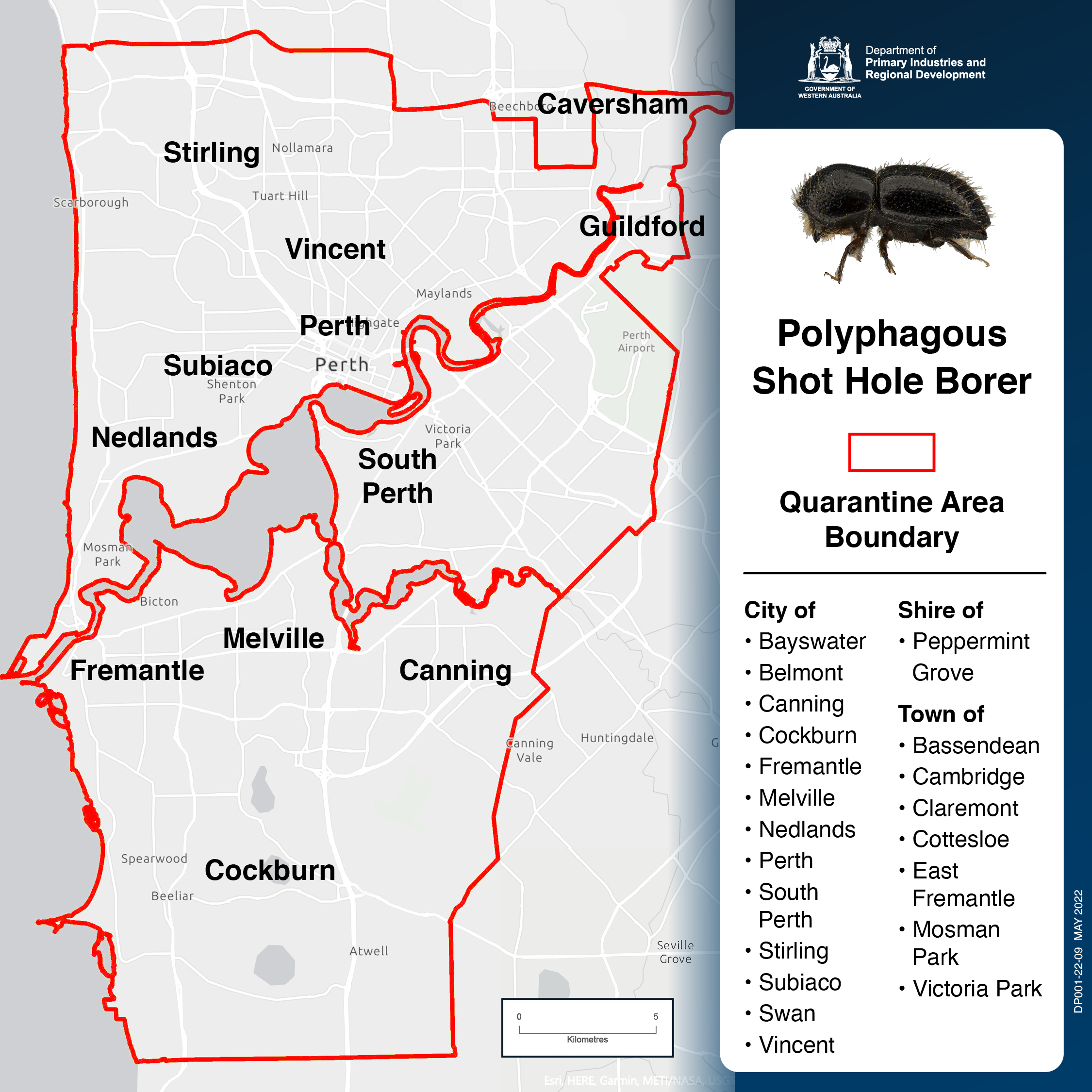Quarantine Area for Polyphagous shot-hole borer expanded to support surveillance
On Friday 13 May, the Department of Primary Industries and Regional Development expanded the quarantine area for the exotic pest Polyphagous shot-hole borer to support their ongoing surveillance program to determine the spread of the pest.
The quarantine area continues to include the City of South Perth.
To date, positive samples have been taken from 21 different species of trees including:
- Box elder maple (Acer negundo)
- Coral tree (Erythrina sp.)
- Sophora (Sapindus sp.)
- Poinciana (Delonix regia)
- Sea hibiscus/cotton wood (Talipariti tiliaceum)
- Mango (Mangifera indica)
- Poplar (Populus sp.)
- Ash (Fraxinus sp.)
- Avocado (Persea americana)
- Sapporo Autumn Gold (Ulmus Sapporo)
- Hibiscus (Hibiscus sp.)
- Fig (Ficus sp.)
- Robinia (Robinia sp.)
- Wisteria (Wisteria sp.)
- Weeping boer-bean (Schotia brachypetala)
- Japanese Aralia (Fatsia japonica)
- Kei apple (Dovyalis caffra)
- Citrus (Citrus sp.)
- Candlenut (Aleurites moluccanus)
- Kurrajong (Brachychiton populneus) and;
- Loquat (Eriobotrya japonica)
For further information please visit agric.wa.gov.au/borer or contact Incident Controller, David Cousins on david.cousins@dpird.wa.gov.au or (08) 9368 3920.
The full media release can be viewed below.

Department of Primary Industries and Regional Development
- Phone 9368 3080
- Email PSHB@dpird.wa.gov.au

